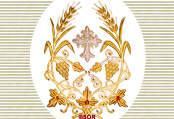
 |
|
||
| Joint
Communiqué of the Third Pro Oriente Syriac Consultation Chicago; July 11, 1997 |
|
OO Meetings
Other Dialogues
|
The Third non official Syriac Consultation on Dialogue within the Syriac tradition took place at the Center for Development in Ministry, at the University of St. Mary of the Lake, Mundelein, Illinois, USA, from 8-11 July 1997, at the invitation of Mar Dinkha IV, Catholicos Patriarch of the Assyrian Church of the East, residing in Morton Grove, Ill., and the late Joseph Cardinal Bernardin, Catholic Archbishop of Chicago. For this Syriac Consultation PRO ORIENTE invited participants from the Oriental Catholic Churches (Chaldean, Syrian, Maronite, Malabar and Malankara), from the Oriental Orthodox Churches (Syrian Orthodox of Antioch, Malankara Orthodox of India) and the Assyrian Church of the East (of old and new calendar), namely all who share a common spiritual and liturgical heritage in the Syriac language and traditions. Observers were present from the Pontifical Council for Promoting Christian Unity, the Coptic Orthodox Church, the Mar Thoma Syrian Church, the National Conference of Catholic Bishops of the USA, the Roman Catholic Archdiocese of Chicago, the Catholic Near East Welfare Association, and the Faculty of Mundelein Seminary, along with expert scholars and the staff of PRO ORIENTE. After a preliminary session in which the speakers discussed the mission of the PRO ORIENTE Foundation, the ecumenical activities of the Roman Catholic Archdiocese of Chicago, and the Illinois Conference of Churches, Patriarch Mar Dinkha IV and Archbishop Francis E. George, OMI, of the Archdiocese of Chicago, formally opened the Third PRO ORIENTE Syriac Consultation with prayer. Archbishop George welcomed the participants to the University of St. Mary of the Lake and he reminded those present that each culture can become a locus theologicus, a vessel of Christ's truth. Patriarch Mar Dinkha IV, for his part, took this occasion to make the following announcements of great ecumenical importance:
The topics under discussion in the working sessions of the consultation were three:
Since the three Syriac Consultations have covered some of the key doctrinal issues that separated our churches in the past, it is equally important now to turn to the large common ground that unites us. So we recommend to the PRO ORIENTE Foundation and to our churches that future consultations be devoted to further exploring the ecumenically positive aspects of the theological and historical experience that bind us together as sister churches. We propose the following as possible themes for future study: Sacraments, sacramentality and sacramental theology especially starting with the three sacraments of initiation namely baptism, confirmation/myron and Eucharist; Ecclesiology and especially the question of authority in its various expressions like synodal authority and primatial authority as practiced in the Syriac churches in the past as well as today; Mission in the churches of the Syriac traditon—its theology and practice in both historical and contemporary experience; Spirituality, liturgical, monastic and popular: its sources, orientation and contemporary expressions in the churches of the Syriac tradition; Common witness and service to the world. Patriarch Mar Dinkha IV and the Syrian Orthodox metropolitans participating in the Consultation informed the members that during these days of our meetings Patriarch Mar Dinkha IV and Mor Ignatius Zakka I Iwas, Patriarch of Antioch and All the East, have confirmed by letter that they have agreed to appoint a bilateral commission to explore ways to bring about a rapprochement between their churches. In the evenings the participants in the Syriac Consultation were invited to prayer and agape with the Assyrian Church of the East, and at St. John Syrian Orthodox Church, St. Ephrem Chaldean Church and Our Lady of Lebanon Maronite Church, all in the Chicago area. Patriarch Mar Dinkha IV was present on these occasions and he spoke warmly and encouragingly of the need to persist in the endeavor to bring about the union of the churches of Syriac tradition. Furthermore, Mar Dinkha IV encouraged the participating churches to work together in pastoral and other practical projects pending the removal of the barriers that still separate them. All the participants are grateful for the grace-filled days and evenings during which they have been able to give glory to God together as they have dedicated themselves to promoting ecclesial unity among the churches of Syriac patristic and liturgical heritage. Our hope is that the new millennium will find our churches taking ever more concrete steps toward achieving that union in faith and love of one another for which our Lord, Jesus Christ prayed to his Father, "That they may be one as we are one." (John 17:11). |
| Copyright © Syriac Orthodox Resources. All Rights Reserved. |
| Last Update: December 30, 2001 |